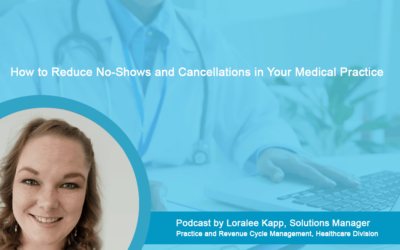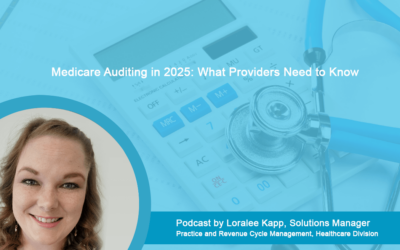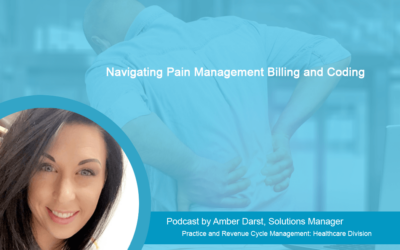Outsource Strategies International(OSI) is an experienced provider of reliable medical billing services for diverse specialties. We provide services of skilled AAPC or AHIMA certified coders and billing specialists.
In today’s podcast, MeghannDrella, one of our Senior Solutions Managers discusses billing and coding for opioid use disorders in 2021.
Read Transcript
Hello and welcome to our podcast series. My name is Meghann Drella and I’m a Senior Solutions Manager here at Outsource Strategies International. Today, I’ll be discussingin billing and coding for opioid use disorders in 2021.
00:14 Opioid Crisis – Statistics
The opioid crisis has reached devastating proportions in the U.S., leading the government to declare it a national emergency. Latest data suggests that the number of deaths due to opioid misuse surged during the pandemic. In December 2020, the Centers for Disease Prevention and Control (CDC) reported that over 81,000 drug overdose deaths occurred in the U.S. in the 12 months ending in May 2020, the highest number of overdose deaths ever recorded in a year.
Opioids include prescription pain relievers, heroin, and synthetic chemicals such as fentanyl and fentanyl analogs. Physicians prescribe opioids to treat acute and chronic pain and for cancer treatment and end-of-life care. Prescription pain relievers such as oxycodone, hydrocodone, and morphine offer many advantages, but misuse and abuse of these medications comes with serious risks and side effects. They affect various organ systems and impact a large number of body functions. Common side effects include constipation, nausea, dizziness, sedation, clouded thinking, and slowed breathing. Pain relief medicine should be used safely and effectively, but they are highly addictive. According to a report on the leading cause of deaths from injury in the U.S., half of deaths due to drug overdose are related to prescription drugs.
01:35 Opioid Use Disorder – DSM–5
Problematic opioid use is referred to as opioid use disorder (OUD). The Diagnostic and Statistical Manual of Mental Disorders (DSM–5) states that diagnosis of OUD requires a “problematic pattern of opioid use leading to clinically significant impairment or distress.”
There are a complex set of combination ICD-10 codes to describe opioid use and its many indicators, consequences, and associated conditions. Clinicians should have a thorough knowledge of OUDs and their complications. Accurate diagnosis and documentation are necessary to report the circumstances and complications associated with opioid use. According to an ACP Hospitalist report, the following points should be kept in mind when coding OUD and opioid-induced conditions or complications:
- All opioid-induced conditions should be clearly documented.
- The clinical documentation should specify if the complication is opioid induced.
- The DSM-5 diagnostic criteria should be used by the clinician to determine whether a patient has mild, moderate, or severe OUD.
02:39 OUD – ICD-10 codes
Physicians should also be up-to-date with ICD-10 coding changes. Attached is a list of the codes associated with this treatment.
- F12.13 Cannabis withdrawal, with mild use disorder
- F11.13 Opioid withdrawal, with mild use disorder
- F13.130 Sedative, hypnotic or anxiolytic withdrawal, uncomplicated, with mild use disorder
- F13.131 Sedative, hypnotic or anxiolytic withdrawal, delirium, with mild use disorder
- F13.132 Sedative, hypnotic or anxiolytic withdrawal, with perceptual disturbance, with mild use disorder
- F13.139 Sedative, hypnotic or anxiolytic withdrawal, unspecified, with mild use disorder
- F14.13 Cocaine withdrawal, with mild use disorder
- F14.93 Cocaine withdrawal, without use disorder
- F15.13 Amphetamine or other stimulant withdrawal, with mild use disorder
- F19.130 Other (or unknown) substance withdrawal, uncomplicated, with mild use disorder
- F19.131 Other (or unknown) substance withdrawal, delirium, with mild use disorder
- F19.132 Other (or unknown) substance withdrawal, with perceptual disturbance, with mild use disorder
- F19.139 Other (or unknown) substance withdrawal, unspecified, with mild use disorder
When it comes to treating OUD, no single approach works for all patients. Support should include access to medical treatment, mental health services, addiction counseling, and other recovery support services and should be tailored to each patient’s needs and preferences. Moreover, continuity of care is critical.
03:06 HCPCS Level II G codes
In December 2020, the Centers for Medicare & Medicaid Services (CMS) released coding and billing updates for opioid use disorder (OUD) treatment services. There are new HCPCS Level II G codes G2067–G2080, effective Jan. 1, 2020 to report OUD treatment services such as: overall management, care coordination, individual and group psychotherapy, substance use counselling, and addiction counselling.
I hope this helps, but always remember that documentation as well as a thorough knowledge of payer regulations and guidelines is critical to ensure accurate reimbursement for the procedures performed.
Thank you so much for joining me and stay tuned for my next podcast.



